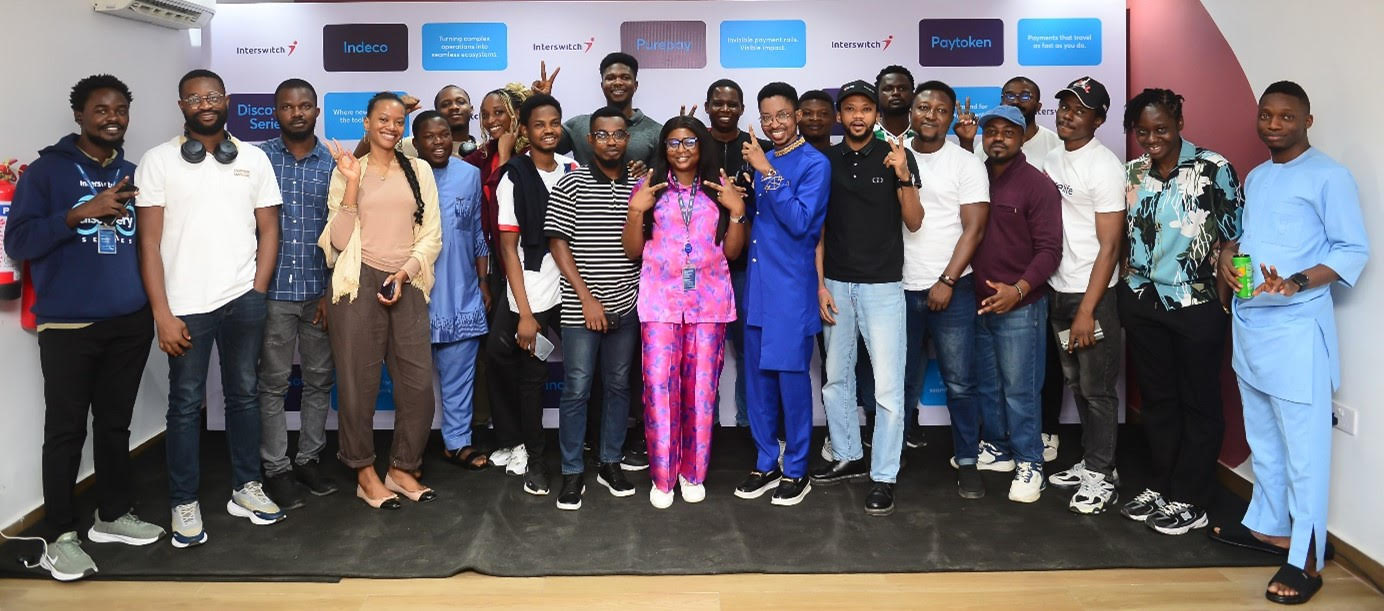Technology
Financial Phishing Cyberattacks Jump 79% in Nigeria

By Adedapo Adesanya
The number of financial phishing attempts in the African regions increased significantly with Nigeria recording a 79 per cent jump in the second quarter of the year.
According to Kaspersky’s Financial Cyberthreats report, attacks in the financial sector are becoming increasingly corporate-oriented and shifting away from consumers as banks, payment systems, and e-commerce websites were attacked massively.
Imperfections in the transition to remote/hybrid work continue to pose a huge threat to businesses. On top of that, economic issues caused by the pandemic have further aggravated the problem. Driven by poverty and unemployment, cybercriminals have continually intensified malicious activities against customers and bank infrastructure.
Financial phishing is a deceptive way of stealing information and is gaining momentum in the region. Phishing is a type of online fraud where the scammer sends fake alerts from banks, e-pay systems and other organisations to trick consumers into sharing their financial details.
The alerts sent by the scammer can be related to loss of data, update credentials or system breakdown, which results in theft of passwords, credit card numbers, bank account details and other confidential information.
According to the Kaspersky telemetry, in Q2 of 2022, a total of 61,344 financial phishing attacks aimed at organisations were detected, an increase of 79 per cent compared to the first quarter.
Giving a breakdown, the largest share of attacks was mostly directed at e-commerce websites with 52 per cent, with payment systems hit by 42 per cent, while banks received about 6 per cent.
It was higher in Kenya, one of Africa’s booming economies, as a total of 100,192 financial phishing attacks aimed at organisations were detected in Kenya, a 201 per cent increase compared to Q1.
The largest share of attacks was directed at e-commerce websites (58 per cent), with banks (21 per cent) and payment systems (also 21 per cent).
Speaking on the report, Mr Emad Haffar, Head of Technical Experts at Kaspersky, said, “A life without the Internet is strange to us. So much so that our financial life is now digital. This is the magic of digitisation. But we also need to be aware of an unprecedented wave of challenges.
“Financial threats are one such challenge which is becoming more advanced in exploiting human behaviour and will only continue to grow. Businesses trying to stay ahead of such evolving, complex cyberattacks should make fraud prevention a focal point to control fraud transactions, eventually reduce fraud risk in the future and avoid reputation damage.”
Kaspersky highlighted certain recommendations to help businesses stay ahead of financial threats and phishing attacks, including companies needing to educate employees as they are considered the first line of cyber defence. This needs to be a continuous learning experience as well as teaching them about the red flags they need to keep an eye out for.
Similarly, organisations need to extend the dos and don’ts of cybersecurity to customers to protect themselves against phishing fraud.
It called on companies to capitalise on the Kaspersky Fraud Prevention solution, which proactively analyses and detects whether a customer’s device is infected with malware in real time.
Organisations were also charged to rely on Kaspersky Threat Intelligence to increase visibility and feed their security operations with advanced insights.
Technology
Elumelu-backed Redtech Plans $100m Raise as Transactions Double to N30trn

By Adedapo Adesanya
Redtech Limited, a Nigerian financial-technology company backed by Nigerian businessman, Mr Tony Elumelu, is considering to raise about $100 million in the next two years to expand its footprints across Africa.
This comes as it announced processing N30 trillion ($20.6 billion) in total transactions over the 2025 financial year, over 100 per cent more than the N12 trillion achieved in 2024, placing the company among the highest-volume processors in Nigeria.
The milestone was driven by strong growth across its payment platform, RedPay – including POS network, merchant collections, and digital payment channels.
According to the firm’s chief executive, Mr Emmanuel Ojo, the milestone marks a decisive shift from capability building to operating at national scale, reflecting sustained trust in Redtech’s infrastructure under high-volume conditions, alongside consistent adoption across sectors.
“This milestone reflects trust from businesses that rely on us to collect and move money at scale, and from partners who expect reliability every single day. We have built Redtech around durability, strong governance, and regularity alignment, so SMEs, enterprises, and regulated clients can grow on our rails without worrying about downtime or friction. With that foundation in place, we are ready to take this approach into more African markets,” he said.
According to a statement, the firm’s transaction volumes have been driven by a mix of SMEs, enterprise customers, and financial institutions across retail, hospitality, insurance, energy, public-sector-linked services, and banking. This highlights Redtech’s ability to support complex transaction flows, including batch processing, reconciliations, and always-on uptime across different sectors.
Redtech plans to expand beyond Nigeria into 29 African countries by January 2027, building towards an Africa-wide payments capability that can support businesses operating across borders, sectors, and payment types.
The company will then consider the Series A funding round, Mr Ojo told Bloomberg.
The startup has so far deployed more than 30,000 point of sale devices and started a payment gateway which helps businesses move money at scale through secure, reliable, and scalable systems that reduce payment failures, downtime, and reconciliation failures while meeting the compliance needs of enterprises and regulated sectors.
Technology
Innovators Lighten up Interswitch Innovation Product Demo Day

By Modupe Gbadeyanka
From Wednesday, January 28 to Friday, January 30, 2026, several experienced and budding innovators were at the inaugural Innovation Product Demo Day put together by one of Africa’s leading integrated payments and digital commerce companies, Interswitch.
The event was organized as a celebration of ingenuity and a catalyst for collaboration, as well as the company’s renewed commitment to building scalable digital solutions and infrastructure that power Africa’s evolving digital economy.
The programme brought together product managers, software engineers, and developers from across the Interswitch ecosystem, alongside student innovators from select tertiary institutions, to spotlight ideas, experiments, and early-stage solutions shaping the company’s next frontier of growth.
They all converged on the Interswitch Innovation Lab Co-Working Space in Lagos. The firm used the occasion to showcase how innovation is built at Interswitch, through structured experimentation, rapid iteration, and cross-functional collaboration.
Over the course of three days, teams unveiled a wide range of working prototypes, new product features, and emerging concepts, engaging in open dialogue that encouraged idea exchange, integration opportunities, and customer-centric problem solving.
The event also featured student innovators from Landmark University and Redeemer’s University, who presented solutions developed through the Interswitch Discovery Series, an initiative designed to nurture future-ready technical talent and strengthen Africa’s innovation pipeline. The students showcased products built from the skills and insights gained through the programme, underscoring Interswitch’s long-term investment in talent development and ecosystem sustainability.
Each presentation opened the floor for robust discussion, with participants offering feedback, asking critical questions, and sharing perspectives on how solutions could be refined, strengthened, and scaled. This collaborative environment reinforced Interswitch’s approach to innovation as a continuous learning process, grounded in execution, accountability, and real-world impact.
“The Interswitch Product Demo Day is more than a showcase. It’s a space where our teams can test ideas, learn from one another, and see the real-world impact of their work. It strengthens collaboration, builds technical capability, and inspires both our people and the wider tech community to keep shaping the future of technology,” the Chief Innovation Officer, Interswitch, Ms Adaobi Igwe-Okerekeocha, said.
Technology
Airtel Commits to Boosting Nigeria’s Digital Infrastructure

By Modupe Gbadeyanka
A leading telecommunications firm, Airtel Nigeria, has reaffirmed its long-term commitment to strengthening the country’s digital infrastructure and data access to bridge gaps in connectivity and unlock new opportunities in the country.
The company gave this reassurance during a recent inspection tour of its ongoing Nxtra Data Centre at Eko Atlantic, Lagos.
The data centre is being established to deliver hyperscale and edge facilities across key African markets. With a load of 38 Megawatts, the Lagos facility is expected to serve as a major hub for data hosting, cloud services, content distribution, artificial intelligence, and enterprise solutions in West Africa.
“This Nxtra Data Centre in Lagos represents a critical part of our long-term vision for Nigeria’s digital ecosystem. Today’s visit allows us to review progress, engage our stakeholders, and ensure that our infrastructure investments continue to meet global standards and local needs.
“This data centre will deliver critical high multi megawatt capacity in line with hyperscale customers and enable high density environment. We are putting the infra to bring the cloud to Nigeria,” the chief executive of Airtel Africa Plc, Mr Yashnath Issur, said.
Also commenting, the chief executive of Airtel Nigeria, Mr Dinesh Balsingh, said, “Since the announcement of this project, our focus has been on building a world-class facility that supports Africa’s digital transformation agenda.
“We are encouraged by the progress recorded so far and remain committed to delivering a secure, energy-efficient, and future-ready data centre for Nigeria,” reiterating that the data centre is progressing steadily towards the previously announced 2028 go live date.
On his part, the chairman of Eko Atlantic, Mr Gabbi Massoud, disclosed that, “Eko Atlantic as a city with high quality infrastructure will contribute positively to boost the economy of Nigeria and is a perfect place for the development of the digital infrastructure of Nigeria.
“The Nxtra data centre reflects the calibre of projects we seek to attract — long-term, technology-driven investments built to the highest global standards.
“Today’s visit affirms the rigour of the planning and execution process by Nxtra, and the commitment of Eko Atlantic to facilitate and promote the Nigeria’s evolving digital ecosystem.”
-

 Feature/OPED6 years ago
Feature/OPED6 years agoDavos was Different this year
-
Travel/Tourism9 years ago
Lagos Seals Western Lodge Hotel In Ikorodu
-

 Showbiz3 years ago
Showbiz3 years agoEstranged Lover Releases Videos of Empress Njamah Bathing
-

 Banking8 years ago
Banking8 years agoSort Codes of GTBank Branches in Nigeria
-

 Economy3 years ago
Economy3 years agoSubsidy Removal: CNG at N130 Per Litre Cheaper Than Petrol—IPMAN
-

 Banking3 years ago
Banking3 years agoSort Codes of UBA Branches in Nigeria
-

 Banking3 years ago
Banking3 years agoFirst Bank Announces Planned Downtime
-

 Sports3 years ago
Sports3 years agoHighest Paid Nigerian Footballer – How Much Do Nigerian Footballers Earn












